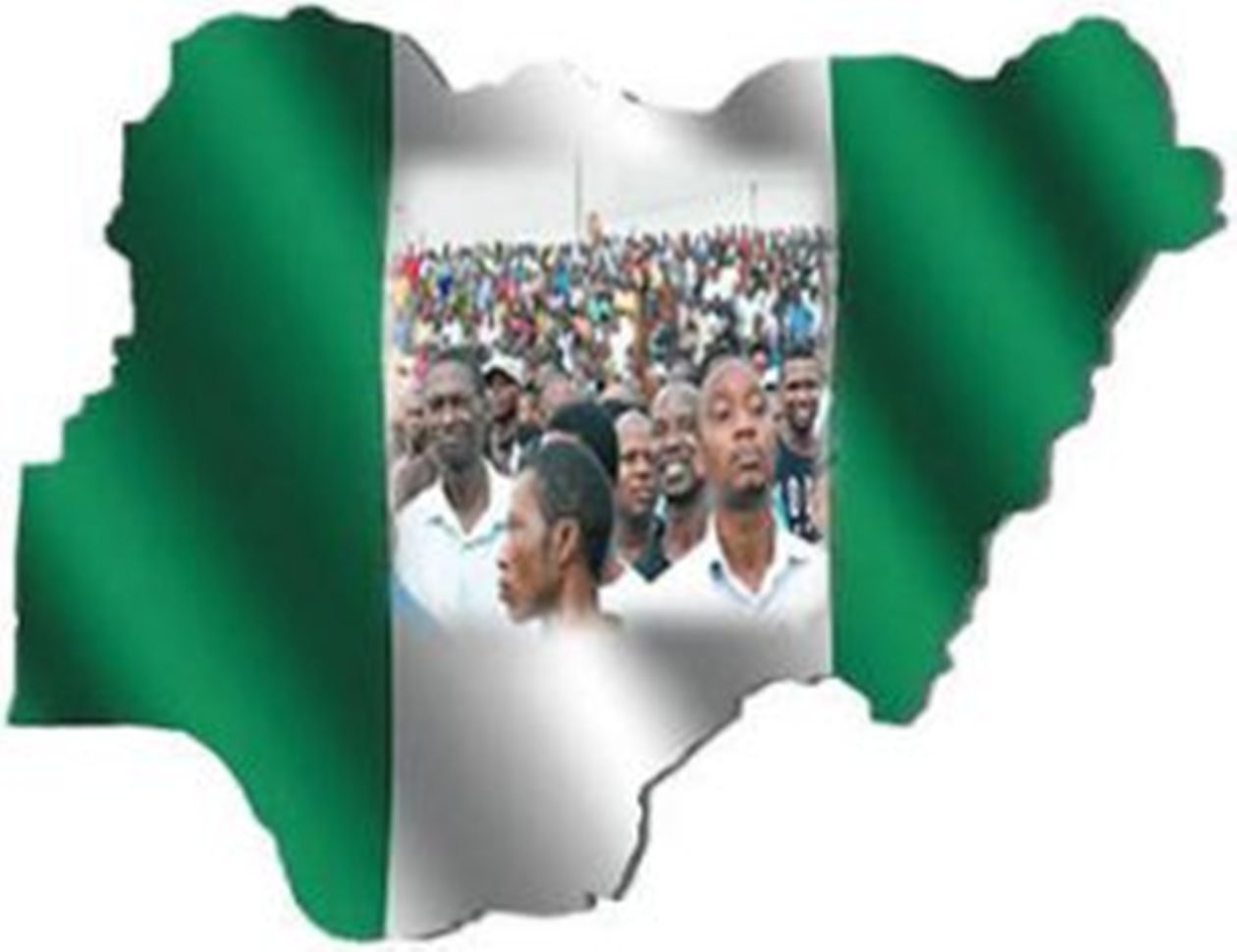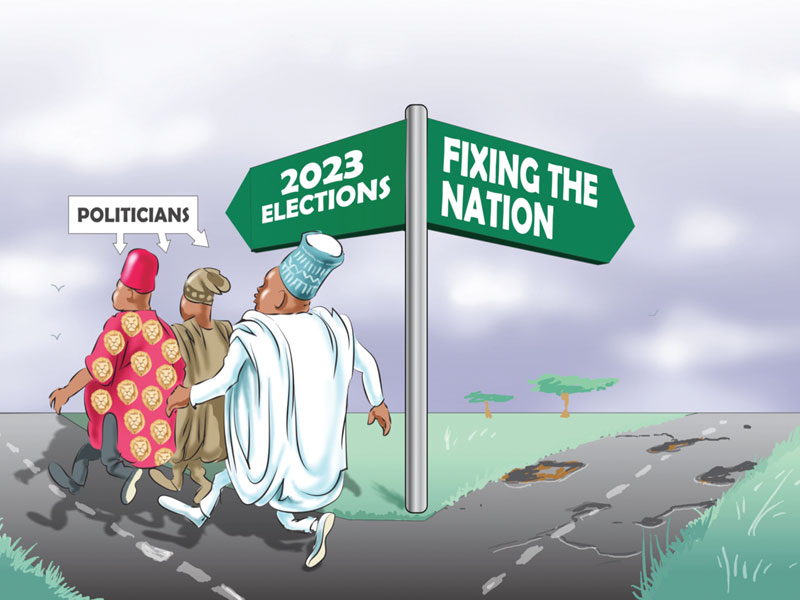The failure to build a post-EndSARS youth conscientisation and mobilisation structure created major slacks. But even as the 2023 elections are now only about 12 months away, there is still time to take up the slacks. It is imperative that young Nigerians recognise their collective electoral strength, capacity to organise, avoid the mistakes of 2015, and begin what this piece calls youths-for-youths mobilisation.

Another election season is upon a country that still hopes to turn a corner in the struggle for national progress and pro-citizen governance. Almost eight years ago, Nigerians rejected a failed political party and elected another that claimed to hold solutions to the country’s many woes. But as it has now become irrefutable, Nigerians have been served double doses of the maladies from which they sought reprieve. Since earning the disgraceful recognition of the world’s poverty capital in 2019 when it was revealed that 86 million Nigerians lived in absolute poverty – surpassing the more populated India and Bangladesh – the situation has continued to deteriorate. Contrary to the President Buhari administration’s claim of pulling 10 million Nigerians out of poverty, a recent World Bank report indicates that 98 million Nigerians or 47% of the population now wallow in multidimensional poverty. This indicates a poverty base that expanded by about 12million new entrants in under 2 years due to a combination of factors including massive unemployment, insecurity, inflation, food inflation, and pervasive public sector corruption. While households as units suffer the effects of worsening poverty, the youths who make up the larger share of the population are the biggest individual victims.
It was, therefore, relatable how the October 2020 EndSARS protest which erupted as a call for humane policing morphed into a demand for good governance and improved citizen welfare. For the first time in the current democratic experience, Nigeria witnessed a trans-ethnic and trans-regional youth-led repudiation of adverse political and socio-economic realities in the country. Before the EndSARS protest,a major challenge to governance programming, as most civil society organisations have reported, had been the degree of political apathy among young Nigerians who remain critical to the country’s turnaround. The spontaneity of the EndSARS protest, its metamorphosis from a call for humane policing to a passionate clamour for good governance, and the nationwide subscription it attracted raised hopes about the agency of Nigerian youths to push for the change they desire.
Further infuriated by the violent crackdown on the protesters by Nigerian security forces, particularly the deadly turn of events at the Lekki Toll Gate, many youths expressed a strong resolve to pursue the demands through the ballot with the 2023 General Elections in view. This unprecedented level of consciousness accompanied with the inclination to take positive action presented an opportunity for strategic youth engagements and mobilisation. Unfortunately, this did not happen at scale enough to sustain the resolve. The failure to build a post-EndSARS youth conscientisation and mobilisation structure created major slacks. But even as the 2023 elections are now only about 12 months away, there is still time to take up the slacks. It is imperative that young Nigerians recognise their collective electoral strength, capacity to organise, avoid the mistakes of 2015, and begin what this piece calls youths-for-youths mobilisation.
An enormous electoral power that needs organising
Data from the Independent National Electoral Commission (INEC) released ahead of the 2019 General Elections revealed that young Nigerians (those aged 18 to 35 years) constituted the clear majority (51.11%) of registered voters. This demographic dominance is expected to continue by the end of the Continuous Voter Registration (CVR) preparatory to the 2023 elections. In July 2021, INEC revealed that 74% of applications received for the online CVR were from persons aged 18 to 34 years. With this numerical strength, not only can the youths actualise the leadership they desire across all levels but they can also capture political leadership. To actualise this, a structured youth engagement and mobilisation movement is imperative. While the amorphous nature of the EndSARS protest arguably enhanced its success and remarkable duration, especially as the absence of a leadership meant that the government had no particular individuals to attack to dampen the spirit of the protest, political mobilisation presents a different context where structure is paramount. Organised on a non-partisan, non-ethnic and non-religious basis, this movement should aim to increase active and informed youth participation in the forthcoming elections.
Harness the proven capacity to organise
Any doubts about the capacity of Nigerian youths to organise was dispelled by the EndSARS experience. The onset of the protest without any external prompts and its execution in the physical and virtual civic spaces set a new standard in civic action. From the non-violent demonstrations across the country to the peaceful congregation at the Lekki Toll Gate to the use of the Soro Soke online radio, young Nigerians demonstrated the ability to organise and make legitimate demands on the system, much to the dismay of the government that seemed to have ruled out the possibility of any significant youth-led action for a change in the status quo.
As the gaze now shifts to the 2023 elections, the youths must be inspired by the EndSARS experience to achieve the kind of governance they desire. To enhance organising, the power of celebrity which the youth possess in great measure will be useful like it proved to be during the EndSARS protest. Celebrity artistes, trendsetters and social media influencers must once again utilise the power of their fame to organise and mobilise the youths. As the dominant political elites begin electioneering activities, youth celebrities can make a clear statement by refusing to be hired to perform in the political events of these failed political actors. Such snub will go a long way to delegitimise their ambitions and candidacy among the youths. While this no doubt is a difficult demand, the positive effects it would have cannot be quantified.
Learn from the mistake of 2015
Realising popular disenchantment with the Peoples Democratic Party’s (PDP) 16 years of dismal governance, the then opposition All Progressives Congress (APC) pitched a message of ‘change’ that resonated with the majority of voters. It was upon the wave of popular support that the APC coasted to victory at the federal and state levels. But as Nigerians have now realised, the promise of change was a smoke and mirror strategy to substitute one bad government for another. Rather than progress, Nigeria has seen its worst multi-sectoral declines under the APC. Therefore, it is important that young Nigerians learn from the experience of 2015 and be reminded that neither dominant political party has the interest nor will to bring about positive transformation.
While leaving behind a legacy of worsening insecurity and industrial-scale slaughter of defenceless Nigerians by non-state armed groups and state security forces, severe unemployment, poverty and inequality, the rollcall of APC presidential hopefuls is dominated by self-interested, avaricious, spent, medically incapable and power-hungry old guards who seek power for power’s sake. The PDP on the other hand has shown a disturbing inability to reinvent itself. Rather than demonstrate how they would govern differently from both their 16 years of misgovernance and the APC’s failed leadership, PDP elites’ main claim to retaking power tends to hinge on the thinking that things could not have been as worse as they are under the APC had the former ruling party remained in control.
The need for a ‘youths-for-youths’ mobilisation
Given the above, a youths-for-youths mobilisation is crucial. It is incumbent on young Nigerians to mobilise in support of qualified youthful candidates on the platform of alternative and forward-looking political parties at all levels. The past few weeks have shown promising signs as some young Nigerians with impeccable leadership abilities have also thrown their hats in the ring, adding to the list of highly-qualified young aspirants determined to give Nigerians the leadership they desire. With overwhelming electoral power, such a strategic mobilisation is necessary to have the votes go in the right direction. However, to avoid the experience of 2019 when too many young candidates jostled for the same position thereby giving the advantage to the status quo-maintaining elites, the youths-for-youths mobilisation plan should have as a critical component, a framework to aggregate different interests and encourage young political aspirants and candidates to join forces and build a unified front to compete for political control at all levels.
Timipere Felix Allison
allisontimipere@gmail.com





















You really make it seem so easy with your presentation but I find this topic to be really something which I think I would never understand. It seems too complicated and very broad for me. I am looking forward for your next post, I will try to get the hang of it!
Hi, Neat post. There is a problem with your site in internet explorer, might check this? IE still is the marketplace leader and a large portion of other folks will miss your wonderful writing due to this problem.
Hi there! I just wanted to ask if you ever have any problems with hackers? My last blog (wordpress) was hacked and I ended up losing a few months of hard work due to no backup. Do you have any solutions to protect against hackers?